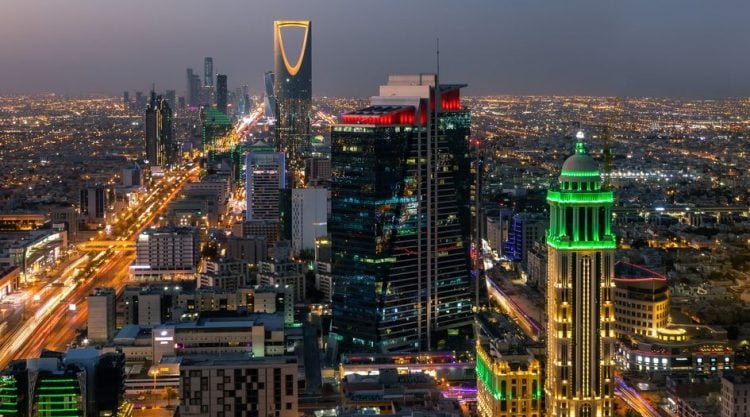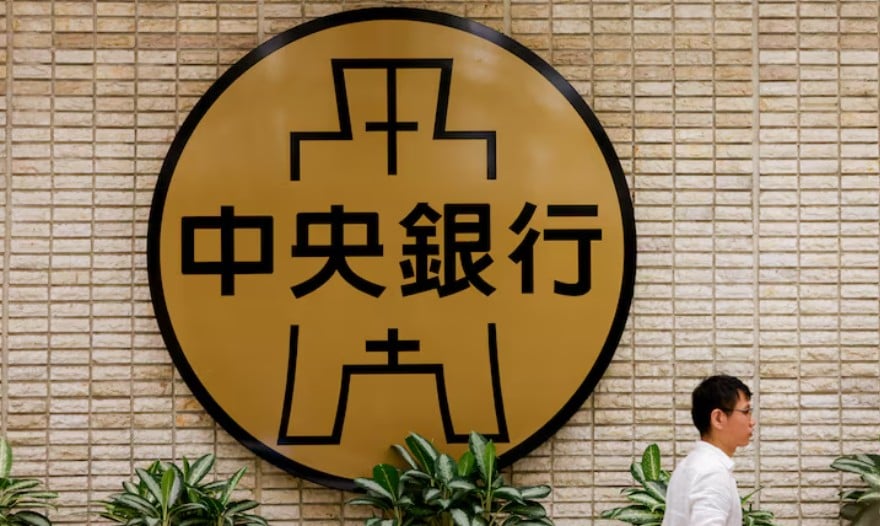Publisher: Maaal International Media Company
License: 465734
International business licenses surge, driving Riyadh office occupancy to 96%
A surge in the number of foreign business licenses in Saudi Arabia has contributed to soaring office occupancy levels in Riyadh and other key cities in the Kingdom, while the retail sector too is experiencing a boost in activity, particularly in the Saudi capital, according to the latest analysis by global real estate consultant, Knight Frank.
Faisal Durrani, Partner – Head of Middle East Research, explained: “Businesses from the world over continue to clamour for a piece of the unfolding economic transformation in Saudi Arabia. The number of international business licenses surged by 358% last year, with most of the demand concentrated on the capital, Riyadh.
Unsurprisingly, occupancy levels across the city’s prime office buildings have climbed, hitting 96%, the highest level in at least five years. With occupiers globally focused on best-in-class office space as a tool in the war for talent and to satisfy internal ESG considerations, Riyadh’s prime office buildings are experiencing unprecedented levels of demand. Rents are reflective of the buoyancy in demand and have increased by 6.5% in the last 12 months to reach SAR 1,560 psm.”
اقرأ المزيد
According to Knight Frank, demand for office space in Jeddah has also started to pick up, albeit at a slower pace. This resurgence is being underpinned by new public sector entities (many linked to new real estate projects), establishing a presence in the Red Sea coastal city. This includes the likes of ROSHN, Uptown Jeddah, Al Ballad Development, and Jeddah Central, all of whom have recently opened new offices in Jeddah.
Talal Raqaban, Partner – Valuations & Advisory, added: “We have seen a slow, but steady reversal in decisions to reduce office footprints in Jeddah that were taken during the pandemic. As we slowly move past Covid-19, businesses are rapidly returning to the office on a full-time basis, catalysing the growing demand for offices in Jeddah”.
Knight Frank’s research reveals that prime office rents in Jeddah increased by 2.5% during Q1, while Grade B rents experienced a decline of 0.5% over the same period.
The recent rebound in oil prices is helping to boost economic activity and job creation levels in the Dammam Metropolitan Area (DMA). The resultant impact is a rise in office demand, with a focus on Grade A space. The increasing demand has helped to lift rents at the top of the market, with Grade A rents climbing by 2% to SAR 920 per sqm in Q1. Elsewhere, Grade B lease rates, on average, decreased by 2.8% to SAR 575 psm as occupiers shy away from more secondary, older stock in favour of newer, modern buildings.
Unsurprisingly, vacancy rates are also creeping up. Prime space in the DMA has experienced a one percentage point improvement in vacancy levels to 74% in Q1 2021, while Grade B offices have seen a rise in vacancy levels of two percentage points to 37%.
Retail sector
The fortunes of the retail sector are on the cusp of reversing, Knight Frank says. Of the 2,056 foreign investment licenses issued in the final quarter of 2021, 44% were linked to the retail and e-commerce sectors, highlighting the strong appetite amongst international retailers and investors in the Kingdom’s retail sector.
Pedro Riberio, Partner – Head of KSA Retail Advisory, said: “We have noted a steady stream of requirements from international retailers looking to enter the Kingdom, with a focus on Riyadh, putting upward pressure on rents. Malls are the primary target for these new entrants and regional and super-regional mall lease rates are beginning to creep up as new requirements gather pace”.
On average, larger malls in Riyadh have seen rents increase by 1% to SAR 2,716 psm over the last 12 months, while community mall rates have slipped by 1.4% over the same period, according to Knight Frank.
Knight Frank notes that the retail landscape in Saudi Arabia is becoming increasingly competitive. Traditional retailers are encountering challenges, especially as e-commerce penetration grows and consumer behaviour and expectations shift increasingly online. This is driving retailers to rapidly expand their omnichannel offerings, while also shifting their focus to experiential retail.
“Vision 2030 is changing the Kingdom’s retail landscape dramatically. With 56% of Saudi’s population below the age of 35, the country has a young and dynamic demographic. They have been exposed to international brands and fashion labels, restaurant experiences and edutainment overseas. And as these international retailers arrive in their droves, they are being readily welcomed and absorbed into the retail fabric of the Kingdom. Indeed, in Riyadh alone, 290,000 sqm of restaurant-led retail developments, including 275 new restaurants spread across 16 lifestyle retail developments have been completed since the launch of the National Transformation Plan in 2016, ushering in a thriving food scene in the capital”, Durrani highlighted.
In contrast, demand for new retail space in Jeddah has remained subdued. Mixed-use developments featuring a diverse F&B mix, entertainment, and recreational components have maintained a 90-95% occupancy rate. Those mall owners that have been slower to adapt to shifting consumer behaviour have experienced a flight of retailers to developments that offer a superior customer experience and appealing lifestyle and public realm aspects, Knight Frank points out.
Unsurprisingly, retail rents in Jeddah have weakened in the last year, albeit marginally. Over the last 12 months, rents in larger malls have dropped by 1% to SAR 2,655 psm, while community mall lease rates have declined by 1.7% over the same period.
Knight Frank’s research reveals that the overall vacancy rate in Jeddah has edged up to by two percentage points to 15%. Larger malls and lifestyle-oriented developments continue to fare better than community malls and Grade B retail centres, both of which continue to experience increased vacancy levels.








